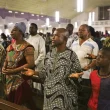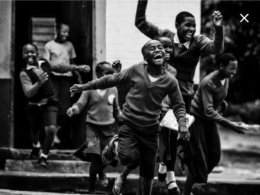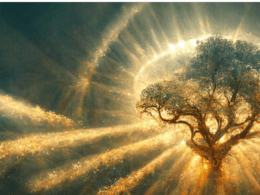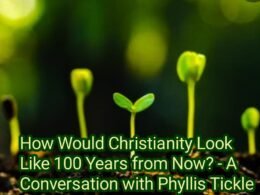Introduction
Since the beginning of the nineteenth and the first half of the twentieth century, the academia milieu seems to be tending the idea of the possibility of perfect world order. A world that will be typified with blissfulness, joy, and serenity, such as was depicted in the apocalyptic sense of the Bible, devoid of pain, sorrow, and tears (Revelation 21, 22). This proposition summarizes the general hope and anticipation of many theologians and philosophers of that era. The expectation and euphoria for the new world order were particularly heightened, especially with the prospect and the potential promises that connected it with secularization, which Harvey Cox described as a process of the man turning his attention away from worlds beyond and towards this world and this time (Saeculum – “this present age”).
A notion which Dietrich Bonhoeffer in 1944 christened “man’s coming of age.” Harvey Cox, who had been awe-struck by the prospect of secularization as providing the ideal society for humanity, “mockingly” belittle the role that religion will play in the proposed future secular city. He strongly affirms that though the force of secularization has no plan to persecute religion, he was hopeful that it would bypass it and go unto other more cogent matters facing society. Cox predicted that secularization would relativize worldviews and, in the process, render them harmless.
This general impression had been the previous worldview of Nietzsche and many theologians and philosophers of the Enlightenment era. Hurriedly, many Enlightenment thinkers stepped away from their historical roots of religion and faith and embraced secularization.
For instance, Friedrich Nietzsche (1844-1900) was an ardent critic of Christianity and its whole sway on western culture. His worldview was immensely impacted and fashioned by the philosophy of Arthur Schopenhauer (1788-1860), the German composer Richard Wagner (1813-1883), and of course, his obsession with the ancient Greek world. These three realms of influence provided the essential components for a new, non-Christian vision- an alternative route to Christianity. He had a genuine unequivocal belief in a better alternative that is life-affirming, energetic, and profoundly irrepressible.
Rauschenbusch, on the other hand, was highly optimistic about the church and did believe that the ideal social manifestation of Christianity was on the way. He sees the emergence of modern democracy as fulfilling that expectation. Bradley and David Nystrom capture Rauschenbusch’s optimism by reporting that “Between 1815 and 1830, European rulers tried desperately to repair the damage that had been done to the idea of monarchy during the French Revolution.” But it was too late. Popular enthusiasm for human rights, constitutional government, and democratic institutions was growing, supported by the political philosophy of liberation. The basis of liberation was a genuine optimism concerning human beings. Many liberals believed that if people were allowed to think and act without interference, they would be able to create an ideal society.
Unfortunately, the unanticipated happened! The much-preempted optimism has splintered, human imperfection has diminished the hope. The outburst of World War I and II threatened the fabric of modern democracy and, of course, the high-sounding promise of secularization. Consequently, it abruptly ends man’s optimism. Harvey Cox subsequently summed it up by saying that secularization is not the Messiah, neither did he necessarily see it as an anti-Christ. Cox conceives secularization as a dangerous liberation, which according to him, we have no choice about. The obvious thing to do for Cox in this situation was the proclamation of the presence of Someone Else in the secular city. In the Global City, the declaration of that Someone Else is of my interest in this essay.
Secularization is seriously deficient in keeping to its promise of perfect world order in the sense of its attempt to abolish religiousness in the global city. Secularization in its non-religious mode has been with us for quite a while, particularly in Europe, and has not done much to bring humanity towards absolute peace and harmony. Likewise, the “sacred city” that Wariboko recognizes as an ideology based on the notion of concentrated divine presence. Typified as a special place of glory, but obviously, not based on voluntary principle or equal access, it has also proven inadequate in resolving the matter. Stemming from the failure of secularization and sacred city in leading the world to global peace and harmony.
I want to join Wariboko, my seminary professor, to suggest the “charismatization” of the Global City as a viable alternative option in resolving the deficiency of secularization as proposed by the enlightenment theologians and philosophers. And the proposition of the sacred cities as we have in many nations of the world today. One fact that has bothered Harvey Cox for decades is how God can be thought of in the global secular city since the secular man has lost interest in the ultimate mysteries of life? Cox has been a proponent of the dispersal of the divine presence in the global secular city; he did not belong to the stock of the “death of God” advocates. Cox believes that secularization is an offspring of the biblical faith and its radical deployment in the creation story. Wariboko observes that if secularization is a religious phenomenon, a kingdom of God affair, he opines how the Pentecostal has redefined the “Reign of God” on earth and the meaning of secularization? Wariboko reasons that if the secular city, like Cox, depicts in his book is the kingdom of God – the New Jerusalem. He opines that the Pentecostals are not returning to the secular city with religion. They are always already in it.
Methodology Part 1
Harvey Cox, in his book Fire from Heaven, writes that “as the twentieth century progressed, large blocs of people became increasingly skeptical about inherited religious dogmas, and ecclesiastical institutions, steadily lost their power to shape cultures” for Cox, it was this situation that gave rise to the plausibility of secularization and “death of God” catchphrase. But unknowingly for these secularization proponents, Cox opines that they were naively oblivion to the fact that “not only were large numbers of people becoming alienated from traditional religion, they were also losing confidence in the bright promises of science and progress.”
This was a two-way disappointment both for the orthodox religion and its hierarchical structures and the secularists whose convictions lie in the absolute triumph of technical advancement and rational enlightenment. Regrettably, many new urban dwellers avoided the two extreme positions altogether. They chose to go for what they perceived to be the third option, which is a form of new spiritual identities, “using bits and pieces from the old faiths but without buying the whole package of a philosophy, a religion, or an ideology.” Cox argues that the religious traditionalist missed it altogether, elevating dogmas and creeds above people’s inert spiritual desires. Likewise, the secularists were obsessively carried away, with too much culture of technical rationality, to the point of losing its spiritual appeal, that even the creation narratives in the Bible were based. Cox opines that the Pentecostals seem to have found their way through by accident; he writes that they “rebelled against creeds but retained the mystery. They abolished hierarchies but kept ecstasy. They rejected both scientism and traditionalism. They returned to the new kind of ‘religious space’ many people needed”.
What then should be our task? Does it now mean that everyone should become Pentecostal adherents? I don’t think so, but something about the whole notion of Pentecostalism is helpful in this essay, which I will attempt to unveil as I go along in this project. By way of advice, Harvey Cox suggested that one of our primary tasks should be to nourish the secularization process. He proposes that we will prevent it from sliding into a rigid worldview in doing so. He also reminded us to always keep in perspective that secularization has its authentic root in the Bible. He opposes the temptation to restore the sprites to the forest and wants us to circumvent the inclination to re-sacralize politics. In other words, he does not want undue power or significance to be conceded to the political leaders and movements. Cox advocated that all attempts to make advantageous use of public authority, to endorse orthodox religious beliefs or ostensibly religious beliefs of ideological secularists, should be vehemently opposed.
He opines that every group or any group is at liberty to proclaim that its values are supreme. Still, such groups must be prevented from utilizing state power or cultural coercion to vindicate their claim. Cox believes that different values systems of multiple groups can co-exist without any hostile intention to subdue the less fortunate groups.
Now returning to the question, should everyone turn Pentecostal? Wariboko accurately read Harvey Cox, well in his book Fire from Heaven he laid out the goal of Cox, in the following words,
Cox wants his readers to know that if they understand Pentecostalism, they understand (something of) the shape of religion in our age. Not that Pentecostalism is going to take over all other religions, but that we are going to see the “pentecostalization” of religions: emphases of religious experience, deeds (not creeds, beliefs, and doctrines), and faith as an exemplary way of life and as confidence in encounters with the divine (and not text-orientation).
I had already proposed in this essay the “charismatization” of the global city that emphasizes religious experience across all faiths. Similarly, Wariboko affirms that “the secular city, its social and cultural structures, is ultimately grounded in primal spirituality – or will be, as civilizations move past creeds and beliefs. Primal spirituality is the implicit religious affirmation of the secular city in the twenty-first century.” I like to think of the phrase “primal spirituality” as “inherent or hardwired spirituality” based on Durkheim’s ideology about the institutional framework of the society that became very popular after studying religion in its elementary form.
Wariboko attempted juxtaposing the three nuances, i.e., Pentecostals, New Jerusalem, and the Secular City, and writes, “the New Jerusalem is a form of the secular city that has “openly” appropriated religiosity.” A religiosity that is branded with “Pentecostalism” features. He argues that “the New Jerusalem is a form of civilization, the global secular city that will not suffocate the human spirit, represses the oceanic feeling, or arbitrarily confine God to a zone of abandonment.” Cox elaborates that “what we call “Pentecostalism” is not a church or even a single religion at all, but a mood. It represents what might be called “a millennial sensibility,” a feeling in the pit of the cultural gut that a massive change is underway.”
Part II
One of the theological lenses that I have adopted in this essay that will point us to a probable solution of the imperfection of the secularists’ theory of a global city that is void of “religiousness” is the charismatization of the secular city. I think Wariboko’s re-imagination of the secular city in his book The Charismatic City was a response to Harvey Cox’s three different but related book volumes: The Secular City, Fire from Heaven and The Future of Faith. However, beyond just responding to Harvey Cox’s books, Wariboko, offers us new theological tools to rethink the global city. My effort in this section will be to reassess some of the tools in the book Charismatic City. To get started, let’s recap how Harvey Cox defines the secular city in one of his books. Cox declared that the secular city is an epoch whose ethos is rapidly being dispersed into every nook and cranny of the globe, in an era of “no religion at all.” He says that the secular city does not look up to religion to derive its ethics or virtues. Dietrich Bonhoeffer in 1944 called it “man’s coming of age.”
Exactly twenty-five years after Harvey Cox wrote his classic book Secular City, in an article to mark the anniversary – “The Secular City 25 Years Later.” Cox proclaimed on the housetop the resurgence of traditional religious spirituality in Islam, Shinto, Jewish, Hindus, and Christian “fundamentalism.” The rebirth of these religious spiritualities has raised specific questions about the inescapable tendency of secularization. He solemnly acknowledges that human religiosity is a much more relentless attribute that is difficult to undermine. In retrospect, he opines that the view of Bonhoeffer could no longer be held to be absolute truth, as we witness the unexpected resurgence of traditional religion across the whole earth.
Cox had initially predicted in the 1960s that secularization would relativize worldviews, and in the process, render them harmless. However, this was not the case in less than half a century after his prediction. The sudden re-emergence of traditional religiosity across all faiths worldwide has called for a rethink of the hope that was once reposed in secularization as the “savior” of the world. Harvey Cox, who sometimes seems to be carried away, about the notion of secularization in the 1960s when he wrote his book Secular City has had to eat up his words. The way Global Pentecostalism has re-enacted the old-time Pentecostal flame into a worldwide phenomenon in the most talked-about secular city of Harvey Cox that professes little or nothing to do with the religiosity of any kind is humbling. This phenomenon has propelled Harvey Cox to declare that secularization is not the Messiah. Neither should it be seen as anti-Christ. Secularization is a dangerous liberation that humanity has no choice about, and I add should be handled with skepticism. The most fitting thing to do for Cox was for the proclamation of the presence of Someone Else in the secular city, and that is what we are getting at in this essay.
I believe that secularization will be hopelessly deficient in securing a world of absolute serenity and harmony if it does not recognize its authentic biblical and religious roots. It must dispossess itself from the yoke of nationalism by bringing down the iron gate of cultural loyalty. The global city cannot do away with religion, nor will it succeed without technical rationality elements. The two have to work in a state of constant and continuous tension for the supreme good of humanity. Regarding the yoke of nationalism and cultural fidelity, Wariboko, though, argues very strongly in support of Harvey Cox’s idea of the dispersals of the divine presence in the secular city but was quick to point out its major weakness. Highlighting this weakness, he writes that
While the notion of the secular city in history, as put forward by Harvey Cox, tilts highly to the dispersion on the concentration dispersed index of divine presence, it is low on the voluntary principle. Not that it set out to be deliberately so, but the era of the secular city is marked by nationalism and denominationalism, and compared to today’s globalization, its notion of cosmopolitanism is restrictive. Unlike the straight death–of-God thesis, the secular city argument acknowledges divine presence in the cities, but it presumes the dispersed presence of mana to be condoned in protected preserves. It could not really work out as a non-national rhizomatic or networked citi-zation of the divine presence. The secular city, as it is tied to and located in nation-state, is somewhat marked by territorial allegiance and cultural identity.
I would like to contextualize the secular city in light of Wariboko’s re-imagination to solve this problem. I will be using his book, Charismatic City, as our guide.
To begin with, Wariboko opines that
if the secular city is the horizontal or spatial expansion of God’s Presence, the charismatic city is the vertical, intensive, and growth pattern of the same presence in human society. The charismatic city points to the more longing reception and an increase in the exercise of the spiritual gifts by recipients. It is the intensive and extensive growth in the immanent divine-quickening presence or the immanent power of life. So, in a sense, the charismatic city is the charismatization of the secular city. Charisma comes to the secular city.
Though the charismatic city awakens the secular city towards God’s power or renewed fellowship with the divine, it never becomes fused, controlled, or possessed by the secular city awakened by it.
Going forward, he juxtaposed charismatic city’s qualities to the notion of both Secular city and sacred city and has these few observations to make. He writes that
the charismatic city is as high as the church on the voluntary principle and far-flung as the secular city on the index of concentration-dispersion of divine presence. Membership (citizenship) is not based on blood and soil. It is completely free from fascinations about gene pool, caste, or class. It is for universal membership on the basis of equality and dignity of all human beings created in the image of God. The divine presence is in the
midst of God’s children, and no one institution, site, or city can lay claim to an exclusive, privilege, or superior right to it.
The global city of the future is yet to be completed. But it is already a work-in-progress in my own opinion, and it is a charismatic city that exemplifies the apocalyptic New Jerusalem of the book of Revelation 21 and 22. The city is conceived as new earth where God, the transcendent, is expected to dwell amid the earth’s inhabitants to become transimmanent. They will be his people, and God himself will be their God; weeping, sighing and sorrow, will be no more, for God will indeed make all things new. Furthermore, the transformation of that global city was also anticipated with no temple in it, for the Lord God Almighty is its temple. Kings of the earth shall bring their glory and honor into it. The glory and the honor of nations shall also be brought into it (Revelation 21:1-4, 22-26).
Pentecostalism is already providing us with a prototype of what to expect in connection to the kind of spirituality the global city will exhibit for the discerning members of the global city. Wariboko asserts that
Pentecostalism (in its fury, exuberant energy, and rapid growth) is the religious archetype of the impetus of our age. Pentecostal-charismatic movements, with their intense, exploding spiritual energies that are not only transterritorial, but also work and prosper through the same transport and communications technologies, condition the ethos of the world city.
At this juncture, let me make a different case for my proposed “charismatized” global city by locating my proposition within the framework of Emile Durkheim’s theory about the formation of society. A framework which he proposes by studying religion in its most elementary form.
Durkheim believes:
• Every group of people requires ritual activities to hold the community together.
• The relationship between community and religion is most evident among the indigenous societies where ritual activities are a way of celebrating collectively held values.
• These collective values are embodied in sacred symbols that represent the group.
• What is viewed as sacred is not the symbol itself but the collective values of the group.
• The social function of religious rituals is to reinforce the shared value of the group.
When the ritual is well performed then, group members will experience Durkheim’s notion of “collective effervescence”- a feeling of “something more” which could be interpreted to be God or the divine, which in reality Durkheim posited to be merely the collective values of the group.
In his epic study of totemism in North America and Australia, Durkheim found religion to be the basis for forming different social groups within the society. Religion, for Durkheim, must have informed the earliest possible explanation of the natural and the social world. He didn’t believe that religion originated from individuals or a prized private possession of individuals. He opines that to adopt an individualistic view of religion as originating from individual beings or nature is practically impossible since human beings and nature are not sacred on their own. He affirms that their sacredness can only be valid by society, hence his interest in studying the basic form of religion. For Durkheim, the worship of the sacred in religion is the worship of the society, which brings me to the notion of spirituality being inherently present within the society, or that spirituality is a hardwired phenomenon that is always present within a given society.
So, I will passionately argue that the idea of conceiving a global secular city without God or void of religiosity is empty speculation. Therefore, if we may want to buy into the theory of Durkheim, the global city as we now know it in our contemporary time is not going to be void of religiosity because there is an elemental factor about the society that propels it to generate its spiritual energy (collective effervescence) as Durkheim understands it.
Peter Berger, helping to deepen our understanding, states it more elegantly by saying that every human society is an enterprise of world-building, where religion is supremely acknowledged as occupying a significant place. He posits, further, that man and society are inseparable. Therefore, he affirms the statement that “society is the product of man and man is the product of society,” which is not contradictory to him. He opines that they only “reflect the inherently dialectic character of the societal phenomenon. Only if this character is recognized will society be understood in terms that are adequate to its empirical reality”.
Conclusively, Wariboko declared that “the secular city as a metaphor for the divine-human relationship emphasizes the radical immanence of God in this world such that there is no longer a religious (transcendental) determination of symbols of cultural integration.”
Part III
What is the most fitting thing to do? What is the right thing to do amid the imperfection of secularization that distastes any form of religiousness? And perhaps, also from the coercive power of the sacred city, in providing an everyday flourishing life for all citizens of the global city? Wariboko, quoting Aristotle, in his Nicomachean Ethics, says that a city is a place where strangers meet. A city constitutes men and women of different cultural backgrounds. He asserts that plurality of identities usually characterizes the composition of such a city.
I have in this essay reiterates my favorable disposition towards a “charismatized” Global City. What I will add to it is my vision of the plurality of all religions, where legitimate liberty should be accorded all faiths, irrespective of eschatological or doctrinal persuasion, so long such belief does not compromise the moral fabric of the society.
I agree with Harvey Cox that the global city’s whole notion is a concept wrapped up in a “mystery.” Harvey Cox argues that “a mystery is not something that someone might eventually solve. It is something we live with, and people find that this mystery touches them in different ways”. No religion should be allowed to exert undue authority or manipulate state power to its advantage. Wariboko argues that “in a pluralistic society, we must allow people to define for themselves who or what their ultimate concern is.” We must not attempt to solve our everyday social hiccups by demanding the same theological interpretation from people that do not have the same worldview as ours, and about the conception of God or the social “good.” The tension “to be” or “not to be,” which Wariboko calls the tension of “in-between,” is what I think “we” as society and individuals is morally obliged to uphold. I believe this tension has to be sustained so that the threshold limits on both sides are not jeopardized.
The proposed “charismatized” global city is supposed to be an excellent conveyor of the divine impulse, which is currently manifesting in many traditional religions all across the globe. To my understanding, the dichotomy of the state–church separation is tricky, the temptation that many Enlightenment thinkers and philosophers fell into, and many today continue to be naïve about.
I want to argue that religion is inherent, a significant component of the global city. People should not make a separation, and any attempt to sever the two is always an effort in futility. But we must always keep reminding ourselves that we are constantly in a state of tension. Therefore, be ready to live tactically, without falling into any side of both extremes within this tension. The global city, I suppose, will only thrive on freedom and individual choice of what religion to participate in, not on compulsive coercion. Wariboko, interpreting Stackhouse’s understanding of the emerging global city writes, that he (Stackhouse) “maintain that the emerging global civilization is the emancipation of women, democracy, the fundamental equality of all persons, stewardship of the earth, and scientific rationality.”
Conclusion
In his book Future of Faith, Harvey Cox asked rhetorically, what does the future hold for religion and Christianity in particular? Cox was puzzled about the fate of religion in the years to come. In his characteristic manner, brilliantly, Cox captured his imagination and put it down in these excellent and elegant words,
at the beginning of the new millennium, three qualities mark the world’s spiritual profile, all tracing trajectories that will reach into the coming decades. The first is the unanticipated resurgence of religion in both public and private life around the globe. The second is that fundamentalism, the bane of the twentieth century, is dying. But the third and most important, though often unnoticed, is a profound change in the elemental nature of religiousness. The resurgence of religion was not foreseen. On the contrary, not many decades ago, thoughtful writers were confidently predicting its imminent demise. Religion, we were assured, would certainly never again sway politics or shape culture. But the soothsayers were wrong. Instead of disappearing, religion for good or ill- is now exhibiting new vitality all around the world and making its weight widely felt in the corridors of power.
Cox recalls the debates that raged for centuries about the existence of God or the “gods” since Plato’s time, a discourse that is still being debated in our generation. Cox categorizes the history of Christianity into three uneven epochs. First, the “age of faith,” which began with Jesus and his immediate disciples, an age that was characterized by a lively faith that massively propelled the movement into a significant force within the then Roman Empire. The second is the “age of Belief,” when the church hierarchies began formulating creeds and emphasizing the dogmas and doctrines at the expense of spiritual experience. It was an era that was fiercely greeted with the iron fists of the Enlightenment, the French Revolution, the Secularization of Europe, and the anti-colonial upheavals of the twentieth century.
The Third, of course, is what Cox has famously christened the “age of the spirit,” which Joachim of Fiore coined (ca, 1132 – 1202) – a Calabrian monk and mystic. This is the age Cox believes we are currently participating in and helping to conjure its narrative. It is the age of mystery. An era in which no single answer will suffice in taming its incomprehensible complexity. It is an age of prolonged and inarticulate awe and wonder. Cox, opines “faith begins with awe in the face of mystery.”
Let me draw the final curtain with these quotes from Soren Kierkegaard (1803 -1855), who remarked that “as soon as we are old enough to look around, we find ourselves on a ship that has already been launched. As we become aware of the world’s mysteries, self, and others, they always arrive imbued with a particular cultural tradition’s specific languages, emotions, and thought patterns. And these supply the theories, myths, and metaphors with which we respond.”











I take pleasure in, lead to I found just what I was looking for. You have ended my four day lengthy hunt! God Bless you man. Have a great day. Bye